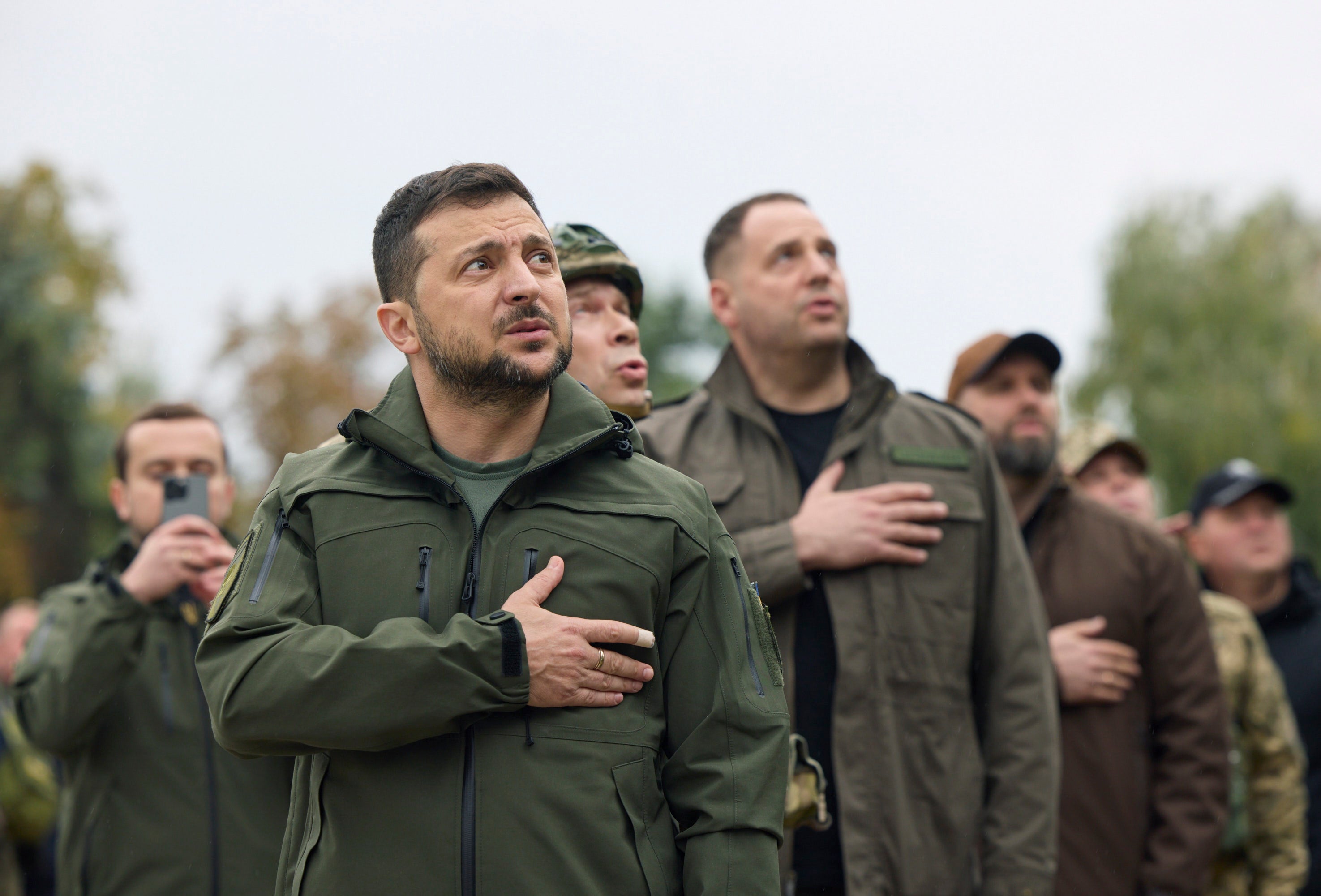Ukraine wants to join Nato but will that happen?
Kyiv is aleady a ‘de facto’ member, says Zelensky, so does it need Nato at all, asks Alastair Jamieson


Volodymyr Zelensky’s announcement that he is to “accelerate” his country’s bid to join Nato was understandable as a swift and symbolic response to Vladimir Putin’s grandstand proclamation in Moscow that another four parts of Ukraine now “belong” to Russia.
To merely refute Putin’s claim, which rests on the supposed result of a sham referendum process, would have felt insufficient.
To a great extent, of course, Ukraine is being regarded by Western allies as if it is already a member; it is receiving as much military backing in the form of intelligence, training, equipment and finance as it might expect to receive if it was already part of the alliance, the difference being the absence of direct military involvement such as airstrikes or “boots on the ground”.
Georgians might wearily interject that Ukraine is in fact getting more support as a non-member than it received from fellow alliance members when Russia invaded in 2008.
The remarkable success of Ukraine’s counterattack against occupying Russian forces is evidence that it could not be regarded as failing to meet common security standards.
“De facto, we have already made our way into Nato,” Zelensky said in his response to Putin’s overblown declaration in Moscow on Thursday. “De facto, we have proven compatibility with alliance standards. De facto. Today, Ukraine is applying to make it de jure... under a procedure consistent with our significance for the protection of our entire community, under an accelerated procedure.”
Nato chief Jens Stoltenberg gave a non-committal reply at a news conference on Friday. “Every democracy in Europe has the right to apply for Nato membership,” he said, adding that the decision on Ukraine’s possible membership was up to the 30 member states.
US speaker Nancy Pelosi was less encouraging, declining to endorse Zelensky’s application and instead suggesting a parallel security guarantee. “We are very committed to democracy in Ukraine,” she said on Friday. “Let’s win this war. But I would be for them having a security guarantee.”
Even if Washington were to back membership, the application process is a potential quagmire, as Sweden and Finland discovered when they applied earlier this year and encountered pushback from Turkey and Hungary.
“I really have sympathy for Zelensky pushing that given where his country is today,” Jim Townsend, adjunct senior fellow at the Centre for New American Security, told Politico. “If there was a fast track out there, Finland and Sweden would’ve already skated right in.”
Arguably, Ukraine’s bid to join is further away now than before Russia’s February invasion; membership is not usually granted to countries involved in territorial disputes, which was already the case thanks to Putin’s 2014 annexation of Crimea. This is because of Nato’s article V requirement for mutual defence in the event of an attack, which would effectively commit Nato members to direct military involvement in the Ukraine war.
The same countries that are holding back from full assistance for Ukraine now are likely to be the same ones opposing membership for the same reason, says Leah Scheunemann, deputy director of the Transatlantic Security Initiative in the Scowcroft Centre for Strategy and Security at the Atlantic Council. “Supporting Nato’s open-door policy and actually admitting Ukraine into the alliance are very different things,” she said. “Nato is not ready as a whole to act on Ukraine’s application.”
It is far from clear at the present moment of the conflict that direct military involvement from Nato would improve the likely outcome rather than simply provide Putin with further excuses to escalate.
Outside of Nato, the United States is already reforming and re-equipping Ukraine’s forces to bring them into line with its military standards, while president Joe Biden said on Friday that he was “looking forward” to signing legislation from Congress that would provide an additional $12bn (£10.8bn) to support Ukraine.
Germany announced on Saturday that it would deliver the first of four advanced Iris-T air defence systems to Ukraine in the coming days to help ward off drone attacks.
Turkey has provided Ukrainian forces with drones of its own to gather intelligence and carry out aerial attacks; it also responded with clarity to Russia’s annexation, calling it a “grave violation” of international law.
Parallel international assistance like this, if stepped up, could give Ukraine the help it needs to achieve its aims outside of Nato until the point at which membership was not a stumbling block. Thus Zelensky’s application on Thursday could be viewed as a symbolic step that keeps up pressure on Moscow rather than a sign of imminent Nato membership.






Join our commenting forum
Join thought-provoking conversations, follow other Independent readers and see their replies
Comments